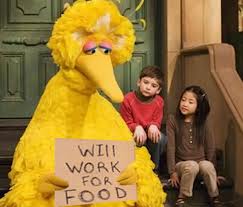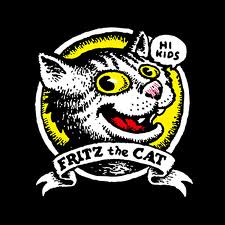Trustees found not liable for investment losses during market collapse, but removed for withholding distributions, disclosing private information and failing to appoint required third trustee.

Blackstone co-founder Peter Peterson was former chairman of Lehman Brothers, Kuhn, Loeb Inc. (Photo credit: Wikipedia)
and sole income beneficiary of two family trusts established under the wills of his grandfather George McFadden (the George Trust) and his father, Ragnar McFadden (the Ragnar Trust). George served as co-trustee with his brother, John, and BNY Mellon, N.A. (Mellon).
Prior to the financial crisis of 2008, John and George shared a similar investment philosophy favoring long-term growth by investing in the common stock of a small number of companies that could be “painstakingly watched” rather than investing in a wide array of virtually unknown companies. The trusts followed this investment strategy throughout George’s lifetime with the long-term goal of providing for George’s children for many years after his death. The Ragnar Trust had an inception value in 1951 of $1,000,000 and had increased to $22,000,000 by 2005 when the trust was split into three separate trusts for the benefit of John, George, and their sister, Mary. A month after George’s death in April 2008, the Ragnar Trust and George Trust had a combined market value of $44,257,000.
Periodically, George brought investment opportunities in private companies for the cotrustees to review. On several occasions, Mellon sought court approval of investments when it did not have sufficient information on the company and was concerned about conflicts of interest. George’s and John’s relationship was damaged by a failed investment in a private company, Washington Furniture, which ended in bankruptcy in 2001. John blamed the failure on George taking large fees from the company. George sought to recoup the failed investment by investing in other private companies and in some cases borrowing money from the trusts to do so. George borrowed $2 million from the George Trust to invest in Affordable Furniture. John sought to protect the trusts’ interests by requiring that a promissory note backed by life insurance be signed by George, and negotiated an option agreement in the company with an anti-dilution provision that allowed the trust to exercise the option for a nominal price of $1,500. A similar transaction was structured for George to invest in Crescent Drilling. The trustees administered the trust as a 4 percent total return unitrust and George received approximately $1.4 million each year.
On April 22, 2008, George died unexpectedly in a plane crash. Thereafter, Mellon raised the issue of appointing a third trustee for both trusts to comply with the trust terms. John and Mellon agreed that a successor trustee should be appointed after settling the trustees’ accountings. An accounting was not filed until June 2009. As a result of George’s death, George’s three children — Lisa (an adult children from his first marriage) and Alex and Feddle (minors) — became income beneficiaries of the trusts. The George Trust provided for discretionary distributions to minors for their support, maintenance, and education. The trustees requested that the minors’ mother, Lucy (George’s second wife), prepare a budget for the care of the minors. To deal with George’s debts and the family’s desperate need for money, the trustees made an emergency distribution of $10,000 in May 2008.
Lucy submitted a budget of $1.2 million and John expressed concern that the amount was for the entire family and not just the minor beneficiaries. The Mellon portfolio manager concluded that to generate that much income the portfolio would have to be invested 85 percent in fixed income and 15 percent in equities, which would not allow for future growth, and recommend administering the trust as a total return unitrust for the minors with a 4 percent payout. John did not agree and favored a 2 percent payout. The Mellon portfolio manager did not believe this would meet the minor’s needs but deferred to John.
Lucy’s attorney submitted a second budget of $2.2 million for the entire family that did not separate out expenses for the minors, on the basis that the trusts were the only means available to maintain the minors’ standard of living. The trustees rejected this budget and discussion continued, during which time several emergency distributions were made, but still below the proposed 2 percent payout.
During the period following George’s death, John worked to obtain payment for the George Trust and for Lucy of life insurance policies that had been taken out to secure the loans to invest in Affordable Furniture and Crescent Drilling. After George’s death, the trustees also sought to exercise the Affordable options, costing only $1,500 in an account valued at $12.5 million. Lucy held an interest in Affordable, was adverse to the trusts and asserted that the Affordable options were not valid because they had not been signed by Mellon and had terminated due to Mellon’s inaction.
The trustees sued in Mississippi to exercise the options. At the same time, the trustees, Lucy and Lisa disagreed over whether to split the McFadden trusts into three shares due to the differing investment needs of Lisa, Feddle and Alex. In 2010 the Philadelphia County Orphan’s Court ordered that the George Trust and the Ragnar Trust be divided into three separate trusts and Winfield Jones was appointed guardian ad litem for Feddle and Alex. Mr. Jones determined that it was not in the best interests of Feddle and Alex to continue participating in the litigation over the options because their trusts would bear the litigation costs and because, as heirs of George’s estate, they would inherit some portion of Affordable. His determination, however, was based on an assumption that George’s estate was solvent.
Mellon also renewed dialogue with John to move the trusts’ concentrated portfolio toward more diversification. Mellon, however, concluded that the proper investment strategy remained aggressive growth, given the specific needs of George’s children. Nevertheless, Mellon continued to push for diversification throughout the summer of 2008.
On September 15, 2008, the stock market began a steep decline after Lehman Brothers filed for bankruptcy. The McFadden trust portfolios declined, and Mellon and John agreed that there was “no need to cave in to panic selling.” By December 2008, John told Mellon that he was “willing to consider diversification but he wanted to wait for the market to stabilize which Mellon thought was reasonable.”
In May 2009, Lucy filed a petition as parent and guardian of Alex and Feddle seeking an accounting from Mellon and John as trustees. The petition also sought to remove the trustees and surcharge them for losses suffered by both trusts in the midst of the financial crisis. Lucy alleged that the trustees: (1) favored Lisa’s interests over those of the other beneficiaries; (2) failed to make appropriate income distributions to the beneficiaries; (3) failed to appoint a third trustee; (4) launched expensive litigation to enforce the Affordable options; and (5) failed to realign the trust portfolios after George’s death in light of the settlor’s intent and the circumstances of the new beneficiaries.
The Orphan’s Court of Philadelphia County analyzed the investments under the terms of the trusts and denied the surcharge claim, on the grounds that: (1) the Ragnar Trust gave the trustees broad discretion in the management of the trust portfolio and was controlling; (2) the George Trust instrument lacked this grant of discretion and placed certain restrictions on permissible investments, as the document was executed shortly after the stock market crash in the Great Depression; and (3) the investments were permissible because the trustees had sought and obtained court permission to remove specific limitations on the amounts of investment in a particular company and the Delaware Orphans’ Court had released the trustees from the George Trust limitations.
The court rejected Lucy’s expert as relying on hindsight, and noted that the prudent investor rule focuses on standards of conduct and not outcome of performance. The court also found that the expert report “failed to acknowledge the complex considerations facing the trustees after George’s death in determining the appropriate distributions to the new beneficiaries” since the prudent investor rule required them to consider the income and resources available to the new beneficiaries. Because the terms of the trust document directed that distributions to the minors be discretionary for their support and maintenance, the trustees properly sought from their mother budgeting information, which took time to obtain. The court held that the trustees diligently and prudently sought to determine the beneficiaries’ income needs and structure an investment strategy that would meet those needs both in the long term and the short term, while taking into consideration relevant tax considerations.
Next, the court found that while the two trustees followed a prudent process, their failure to include a third trustee in the process as required by the trust terms was a clear violation of the settlor’s intent, a violation of the prudent investor rule and a basis for their removal as trustees. The court presumed that a third trustee would have acted prudently and therefore would have resolved the split between the two trustees over the investment strategy. Regardless, the court found that “the exact contours the trust portfolio would have taken under guidance of three trustees were too speculative to support any calculation of surcharge damages.”
The court rejected Lucy’s claim for surcharge damages on the grounds that: (1) alleged breaches had no link to changes in the portfolio; (2) there was no proof of damages and damages will not be presumed; (3) the expert’s opinion that radical reallocation could have been accomplished by April 2008 was unrealistic; (4) the expert focused on the one-year period between April 2008 and April 2009, which straddled a period of extreme economic distress; (5) the expert did not attempt to link the timeframe of his analysis to the terms of the trust or the accounting period; and (6) focusing on one year alone could lead to arbitrary results with very extreme outcomes.
With respect to distributions for the minors, the court approved the trustees’ request for budgets and the distributions that were made for the minors, but held that the trustees abused their discretion and violated a fundamental purpose of the trust by cutting off distributions for the minors when Lucy refused to provide the trustees her personal income tax returns. The court held that this breach was a basis for removal of the trustees.
The court also found that the trustees had breached their duty by not raising an ambiguity in the George Trust that resulted in a possibility that the George Trust could terminate as soon as 2012 at any point in the proceedings. The court rejected the claim that the trustees had breached their duty of impartiality by favoring the interests of Lisa when splitting the trusts. Rather, the court found that splitting the trusts was an effort to advance the interests of all three beneficiaries of the trusts in the options. The court also found that John’s breaches of confidentiality of information supplied by Lucy and shared with Lisa were inappropriate and an additional reason for removal of the trustees.
Finally, the court denied the petitioners’ claim for punitive damages against John, finding that John had not acted maliciously, wantonly, or recklessly.






























































